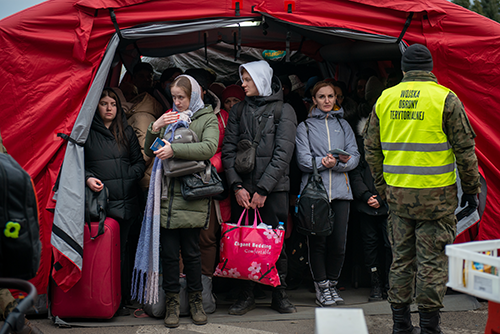In addition to the death and destruction from the war waged by Russia on Ukraine and its people, this has brought a massive surge of displaced people to the EU, increased emigration from Russia, and an unfolding humanitarian crisis. In response, massive economic sanctions imposed on Russia by the international community have cut off vital capital and foreign trade flows to the country. The war has affected the markets for oil and gas, as well as other vital commodities. Prices of energy and food have surged, and supply chains have been disrupted with inflation likely to increase further.
These developments have the potential to deeply affect the living conditions of many European citizens and are likely to have a substantial effect on the world of work, quality of life and social cohesion in the EU in the years to come. Policy will need to respond accordingly.
A range of support measures have been initiated at EU level to help Member States meet the needs of refugees. The European Council has activated the first-ever Temporary Protection Directive, which includes special protection for children, access to education and healthcare, as well as access to jobs, accommodation and housing. In October 2022, the Council adopted conclusions on Ukraine/Russia, critical infrastructure, energy and economy and external relations. In September 2023, in her State of the Union address, Commission President von der Leyen announced a proposal to extend the Temporary Protection Directive for people fleeing Ukraine. On 1 February 2024, EU leaders approved a deal to provide €50 billion in support for Ukraine in the period 2024–2027.
























